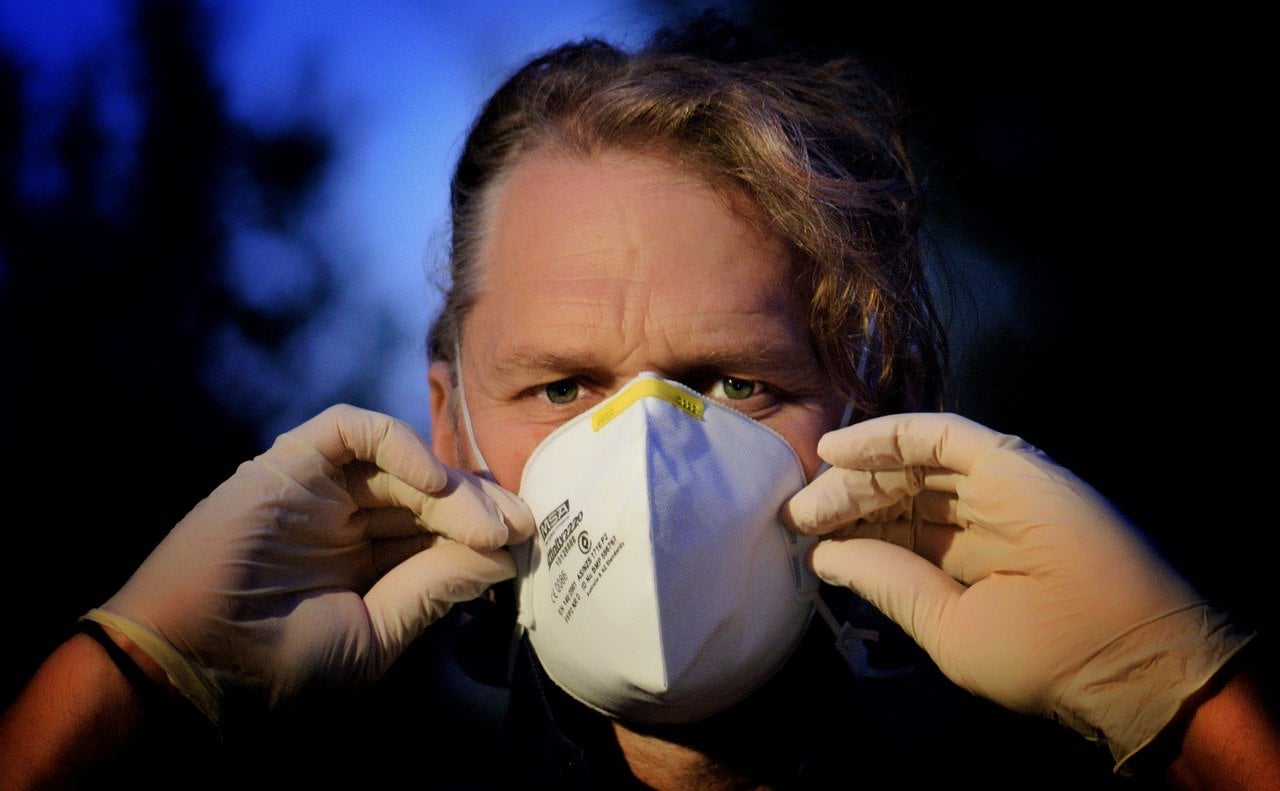Blatant Quarantine Violations Continue to Endanger Lives; Action Needed, New Laws to Impose and Enforce, As Well As Inexpensive Tracking, Needed
Q4 2019 hedge fund letters, conferences and more
WASHINGTON, D.C. (March 11, 2020) -
- Although an entire family was asked by health officials to quarantine after the mother reported coronavirus symptoms, the father took his daughter to a crowded school gala only two days later and, as a result, two schools were forced to close.
- A medical center employee who was told to voluntarily quarantine instead decided to go to a crowded student mixer, and now a close contact has contracted the coronavirus.
- Another man subject to home quarantine was ordered to return to work where he is likely to infect others.
- The rabbi of Young Israel of New Rochelle, the synagogue at the center of the New York coronavirus outbreak, reported that "I have heard alarming reports that some of our members who should remain in quarantine have repeatedly violated it."
- A young man who has tested positive for coronavirus ignored health advice to self-isolate and instead went back to work at a major hotel.
- And who can forget that CNN's-then chief medical reporter, Dr. Nancy Snyderman, deliberately violated a voluntary quarantine imposed on her to protect the public from Ebola, which was believed then to be even more dangerous than COVID- 19.
- Also, in several situations, states and/or their governors were sued for trying to impose quarantines to protect the public from exposure to deadly diseases.
These are just a few examples of why states need new or updated laws to enforce voluntary medical quarantine orders with simpler procedures, and with penalties for violations, as well as begin using inexpensive systems to monitor the ever growing number of carriers and potential carriers who will have to be quarantined as the deadly virus continues to spread, says public interest law professor John Banzhaf.
After all, he notes, we cannot reasonably expect tens of thousands of people to completely and without any exceptions refrain from going to work, especially if it means foregoing badly needed income, or even social events, all just to protect others they may not know or even care much about.
Action Must Be Taken Against Quarantine Violations
Both common sense, and experience with quarantine violations, strongly suggests that new legal procedures to put some teeth into so-called voluntary quarantines are urgently needed not only to protect lives, but also to protect others who may remain healthy but themselves become subject to a quarantine when they are involuntarily exposed when the person violates a voluntary quarantine and ventures into a public place.
The laws regarding voluntary quarantines, especially at the state and local level, are notoriously unclear, cumbersome, and difficult to enforce effectively, as the State and the governor of New Jersey found out when they tried to quarantine a nurse who had been treating Ebola patients in Africa.
Where the laws exist, the procedures required to put them into place may be cumbersome and involve considerable delay, thereby making them largely ineffective with the rapidly spreading coronavirus virus, suggests Banzhaf.
What is urgently needed, before the crisis gets even worse, are some clear laws, requiring only simple procedural steps, and providing realistic penalties for persons who become subject to a voluntary quarantine and then knowingly violate it.
Such laws might also include penalties for lying about one's travel history, about close contacts with others (which frustrates contact tracing), and about other possible virus exposures (all factors vital in slowing the spread of the disease), as well as some penalties for any person who knowingly facilitates the violation of a quarantine, suggests Banzhaf.
Monitoring The Carriers Of This Deadly Virus
Also urgently needed, says Banzhaf, are for governmental bodies to begin using simple and inexpensive means for monitoring compliance with voluntary quarantines since, when both lives and liberty are so clearly at stake, the public should not be required to trust the word of potential carriers of this deadly virus when they claim that they haven't left their homes for 14 days.
Having health workers or police knock on hundreds of doors several times a day to insure compliance with a quarantine simply is not feasible, he argues.
On the other hand, GPS monitoring ankle bracelets are already in wide and successful use to keep tabs on illegal immigrants.
Since most people would probably agree that preventing a potential coronavirus carrier, the subject of a quarantine, from risking the lives of others in public places is at least as important as insuring that immigrants show up for legal proceedings, these same devises could be used in appropriate cases to insure compliance with medical quarantines, suggests Banzhaf.
Indeed, many such devices already now in use - and those already available and being held for use in the future - to track accused illegal immigrants might be diverted to monitoring the location of known and suspected coronavirus carriers.
Also, inexpensive and readily available software can now determine with considerable accuracy the identity of a person from the sound of his voice on a telephone, or at least detect if the new voice matches a prerecorded one.
So, to help insure compliance with a voluntary quarantine order in any dwelling with a home telephone, a computer could easily be programmed to call the person quarantined, at random times at his home telephone number several times each day, and ask him to repeat a sequence of random words (to insure that the voice it hears is not prerecorded) to be sure that he is remaining in his home.
A very similar verification process could be used by having the person voluntarily quarantined called from time to time on his cell phone, since a GPS-equipped cell phone can be located with great precision with simple monitoring/tracking programs.





